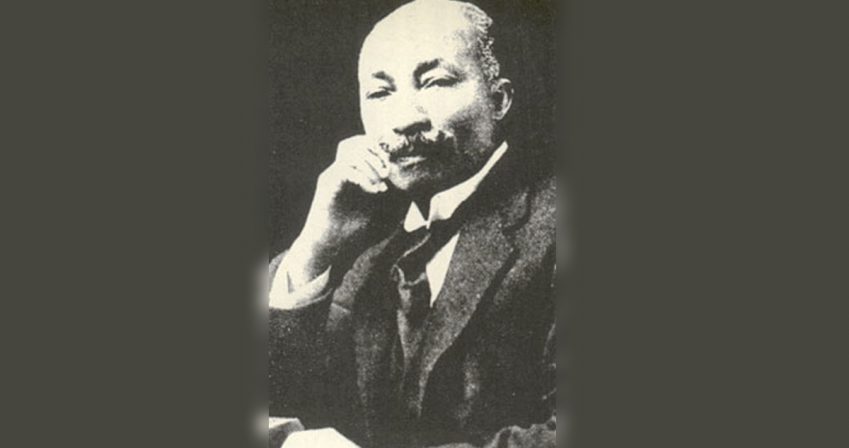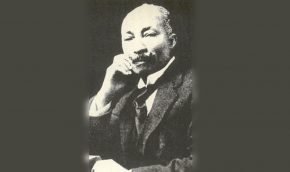An inspiration for Ghana’s independence movement.
Celebrating Diversity at the Bar
- Introduction
- Diversity Timeline
- Edward Akufo-Addo
- Obafemi Awolowo
- Joyce Bamford-Addo
- Solomon Brandaranaike
- Charlotte Boaitey-Kwarteng
- Joseph Ephraim Casely Hayford
- Eugenia Charles
- S Chelvan
- Thomas Morris Chester
- Learie Constantine
- Edward Cragg Haynes
- Patricia Dangor
- Coomee Rustom Dantra
- Gifty Edila
- Ezlynn Deraniyagala
- Taslim Olawale Elias
- Martin Forde
- Arthur Dion Hanna
- Ma Pwa Hmee
- Alexander Isbister
- Sibghatullah Kadri
- Seretse Kharma
- Moleleki Didwell Mokama
- Tunde Okewale
- Ashitey Ollennu
- Vallabhbhai Patel
- Lily Tie Ten Quee
- Ponnambalam Ramanathan
- Edward Richards
- Khushwant Singh
- Manjiit Singh Gill
- Teo Soon Kim
- Leslie Thomas
- Stella Thomas
- Leonard Woodley
Home › Celebrating Diversity at the Bar › Joseph Ephraim Casely Hayford
Joseph Ephraim Casely Hayford MBE
1866 – 1930
Call 1896, Inner Temple
J.E Casley Hayford was born 29 September 1866 in the Cape Coast - present day Ghana - into a prominent African family. After completing his schooling at the prestigious Wesleyan Boys High School, he moved onto Fourah Bay College in Freetown, Sierra Leone, which was the first university of its kind to be established in West Africa. While at Fourah Bay College, he became a supporter and follower of Edward Wilmot Blydon, editor of The Negro, the first explicitly pan African journal in West Africa.
Hayford returned to Cape Coast to become a high school teacher at his alma mater. He was promoted to principle, but this role didn’t last long, he was dismissed on account of his political activism and writing.
He started writing for The Western Echo, a weekly newspaper owned by his uncle at the time. After three years writing, he was promoted to editor where he changed the name to the Gold Coast Chronicle.


In 1893 Casley Hayford left for England to study in Peterhouse Cambridge and The Inner Temple. He was called to the Bar in 1896. Hayford returned to returned once again to Cape Coast where he practiced in private law firms while also editing and writing in the Gold Coast Chronicle.
Like his father, he strongly opposed British property laws imposed by the colonial government in the Gold Coast. The laws conflicted with traditional customs and he believed they negatively impacted African social stability and autonomy and was therefore strongly favoured maintaining existing land conventions. In 1898 he’d written a book on the topic called, The Truth About The West African Land Question. In 1910 he was elected president of the Aborigines Rights Protection Society (ARPS) the first anti colonial organisation founded in the Gold Coast and in 1911 he travelled to London to protest land management act issued by the British Government.
That same year Casley Hayford published, Ethiopia Unbound, loosely autobiographical, it was his first novel and incidentally the first novel to be written in English by an Africa. The novel explored subjects of emancipation and pan-African unity. It was the first novel written in English by an African person.
In 1916 he was elected to the legislative council of the Gold Coast and received an MBE in 1919 Birthday Honours for services in aid of the Prince of Wales’ Patriotic Fund. That year, immediately following the war, he founded the National Congress of British West Africa, one of the first organisation earliest African ant colonial organisations. The congress aimed to promote economic development, education, and democratic institutions, while remaining under British rule.
J.E Casley died in 1930, leaving behind a son and daughter. After his death the west African national congress disbanded. In addition to his writing and books, he was in correspondence with many leading pan African thinkers of his generation, including W.E Dubois, Booker T Washington, Duse Muhammed Ali and was an inspiration for Ghana’s independence movement.
Ayah Al Rawni